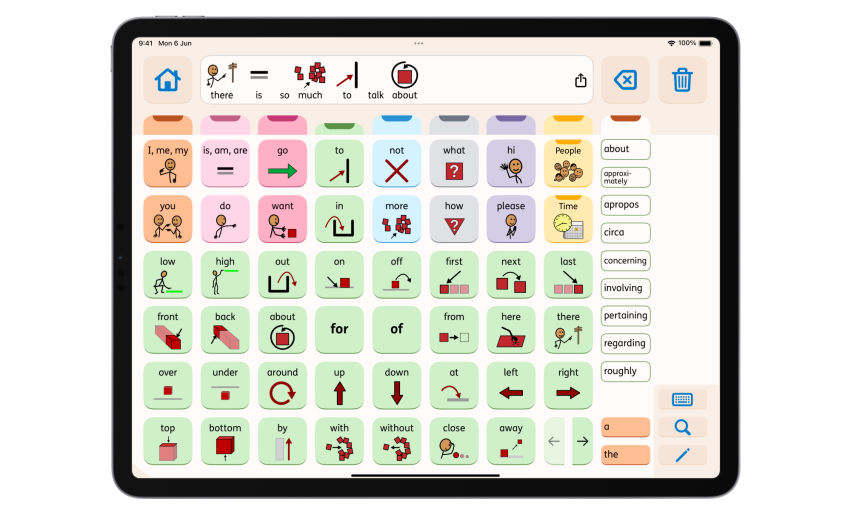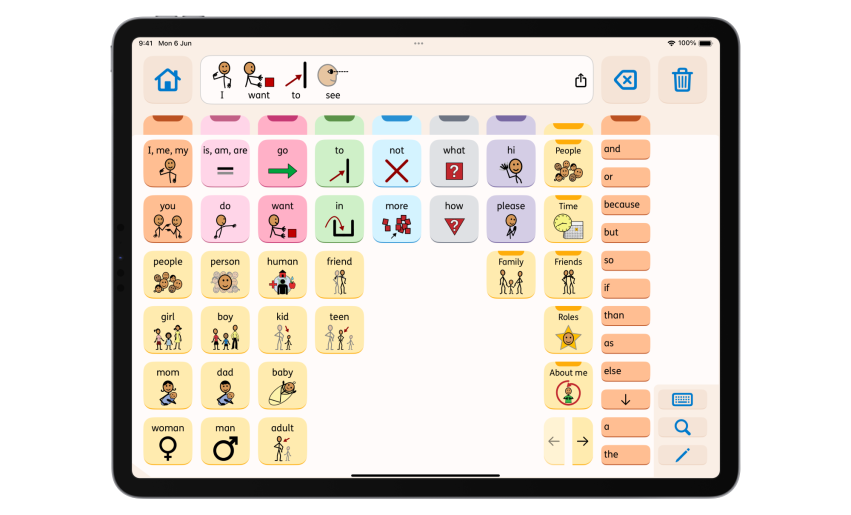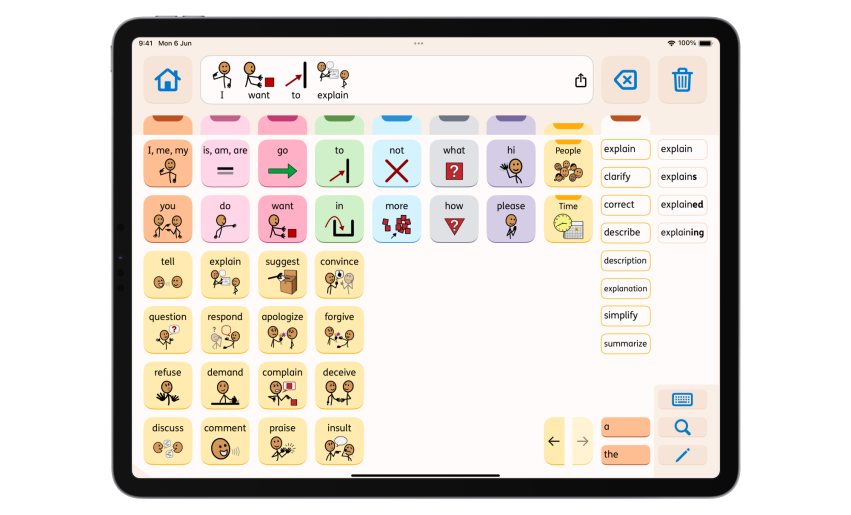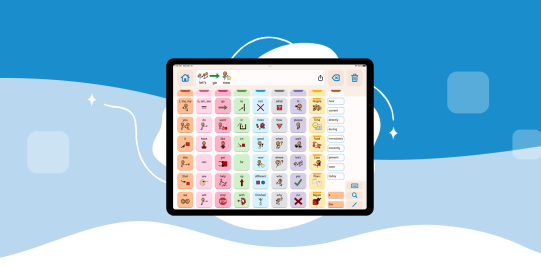Other fringe words
Fringe folders contain more than nouns. They also contain lower-frequency domain-specific verbs and adjectives, such as delicious and yucky in Food. Some of these verbs can also be used as nouns, such as drive and crash in Vehicles.
A comprehensive fringe vocabulary
The fringe vocabulary in Proloquo is comprehensive. In part, this means that it includes the folders commonly found in robust AAC systems, such as People, Places, Vehicles, Animals and School. Time is available from the Home page. It includes all the nouns you would expect, like days, months, and seasons, as well as descriptors such as before and after. Time also includes less common terms, like temporary and forever.
But Proloquo is comprehensive in a way that goes beyond the usual AAC product. We identified fringe words that are so essential that every AAC user needs access to them. These are the words that help us make sense of our world. Concept words like stranger, partner, and bully are used infrequently, but represent important concepts to teach and learn. (You will find them in a subfolder of People.)
Some of these words are organized more by the functional use of the word. For example, verbs such as discuss and refuse are found in the folder called Repair. The Repair folder includes the words we use to talk about communication, with the words we use to explain ourselves and what we meant. When young AAC users are ready to go beyond saying no, they can use the Repair folder to demand or complain.








